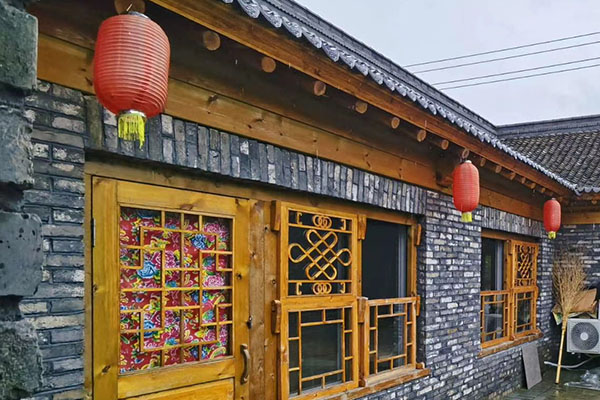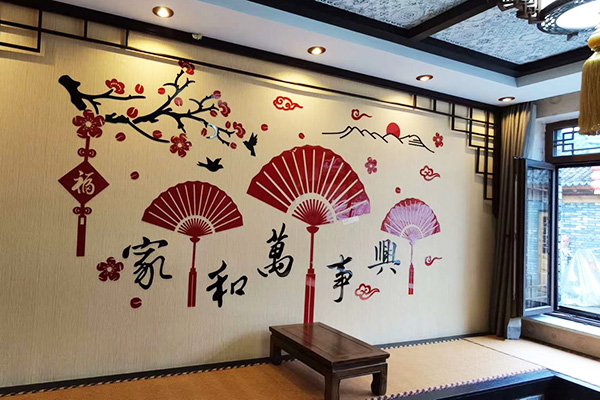

By developing tourism, Hetu Ala village, northeast China's Liaoning province, has lifted local villagers out of poverty.

A corner of Hetu Ala village. (People's Daily Online/Tong Zongli)
Previously, residents in Hetu Ala village, Yongling town under Man autonomous county of Xinbin, Liaoning province, mainly earned a living by working on the farmland. Many of them earned an annual income of less than 10,000 yuan (about $1,461), and the village was also blighted by poor infrastructure and backward living environment.
"When I first came to the village in 2015, I found the young people had left their hometown to earn more money, and the village was over 4 million yuan in debt," said Luo Tiancheng, Party chief of Hetu Ala village.

Luo Tiancheng (left) receives interview. (People's Daily Online/Tong Zongli)
The only industry in the village depended on an orchard with an area of about 333,000 square meters, but it had been abandoned due to negligent management, Luo added.
Using its regional advantages, the local government started to explore rural tourism to increase the villagers’ incomes.
Starting from 2012, the number of tourists in Xinbin has increased at an annual rate of 15 percent, bringing opportunities for villagers in Hetu Ala to develop the B&B business.
The village rented the farmyards of residents out to companies for standardized management, and in addition to the rent, residents could also earn money by working in the farmyards.

A B&B in the village. (People's Daily Online/Tong Zongli)
The village also began operating the orchard so that tourists could go fruit-picking, and cultivated products full of local characteristics, such as cheongsams, to boost revenue.
In 2018, the village received 1.1 million tourists, with total income exceeding 100 million yuan. Tourism has generated jobs for over 1,100 villagers.
As of the end of 2018, all 77 registered poverty-stricken households had been lifted out of poverty, with each villager’s annual income reaching 32,200 yuan.
 Fire brigade in Shanghai holds group wedding
Fire brigade in Shanghai holds group wedding Tourists enjoy ice sculptures in Datan Town, north China
Tourists enjoy ice sculptures in Datan Town, north China Sunset scenery of Dayan Pagoda in Xi'an
Sunset scenery of Dayan Pagoda in Xi'an Tourists have fun at scenic spot in Nanlong Town, NW China
Tourists have fun at scenic spot in Nanlong Town, NW China Harbin attracts tourists by making best use of ice in winter
Harbin attracts tourists by making best use of ice in winter In pics: FIS Alpine Ski Women's World Cup Slalom
In pics: FIS Alpine Ski Women's World Cup Slalom Black-necked cranes rest at reservoir in Lhunzhub County, Lhasa
Black-necked cranes rest at reservoir in Lhunzhub County, Lhasa China's FAST telescope will be available to foreign scientists in April
China's FAST telescope will be available to foreign scientists in April "She power" plays indispensable role in poverty alleviation
"She power" plays indispensable role in poverty alleviation Top 10 world news events of People's Daily in 2020
Top 10 world news events of People's Daily in 2020 Top 10 China news events of People's Daily in 2020
Top 10 China news events of People's Daily in 2020 Top 10 media buzzwords of 2020
Top 10 media buzzwords of 2020 Year-ender:10 major tourism stories of 2020
Year-ender:10 major tourism stories of 2020 No interference in Venezuelan issues
No interference in Venezuelan issues
 Biz prepares for trade spat
Biz prepares for trade spat
 Broadcasting Continent
Broadcasting Continent Australia wins Chinese CEOs as US loses
Australia wins Chinese CEOs as US loses